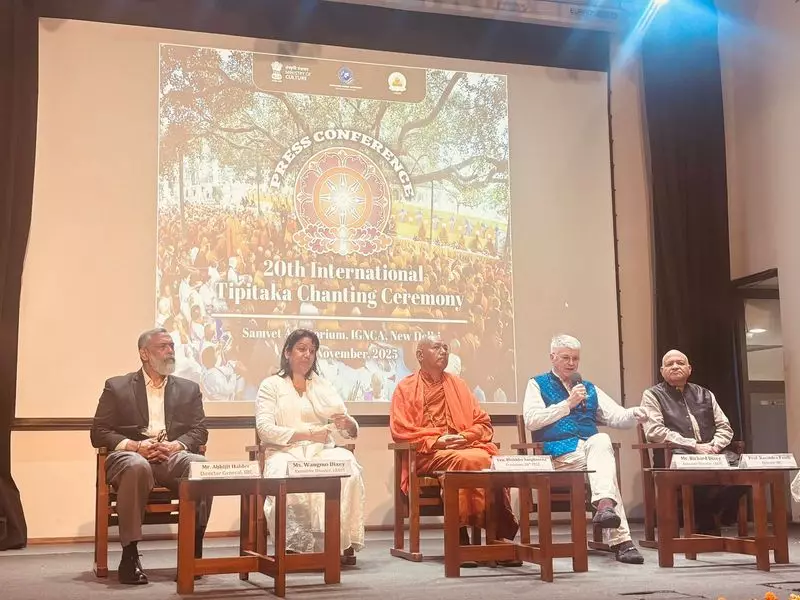
Buddhist communities from various regions of India have joined forces to organize a significant spiritual gathering that marks an important milestone in the preservation of ancient Buddhist traditions. The 20th annual International Tipitaka Chanting Ceremony brings together practitioners, monks, and scholars in a powerful demonstration of religious unity and cultural preservation.
A Landmark Celebration of Buddhist Heritage
The ceremony represents two decades of continuous dedication to maintaining the sacred Buddhist texts known as the Tipitaka. This year's event holds special significance as it commemorates the twentieth anniversary of this international gathering, which has grown substantially since its inception. The Tipitaka, considered the most complete collection of early Buddhist scriptures, forms the foundation of Theravada Buddhism and contains the teachings of Gautama Buddha.
Organizers have emphasized that this ceremony serves multiple purposes beyond religious observance. It functions as an educational platform where younger generations of Buddhists can connect with their spiritual heritage while also promoting interfaith understanding among India's diverse religious communities. The gathering demonstrates how ancient traditions can thrive in modern society through collective effort and dedication.
Nationwide Participation and Spiritual Significance
What makes this year's ceremony particularly noteworthy is the unprecedented level of participation from Buddhist groups across India's different states and regions. Representatives from Maharashtra, Karnataka, Uttar Pradesh, Delhi, and several northeastern states have coordinated their efforts to ensure the event's success. This nationwide collaboration underscores the universal appeal and importance of the Tipitaka within the Indian Buddhist community.
The chanting ceremony follows traditional protocols that have been maintained for centuries. Participants recite passages from the three divisions of the Tipitaka - the Sutta Pitaka (discourses), Vinaya Pitaka (monastic rules), and Abhidhamma Pitaka (philosophical analysis). This oral transmission method has been crucial in preserving the Buddha's teachings throughout history, especially before they were committed to written form.
Venerable monks and experienced practitioners lead the chanting sessions, ensuring proper pronunciation and rhythm according to established traditions. The resonant chanting creates a meditative atmosphere that participants describe as spiritually uplifting and mentally calming. Many attendees report that the collective energy generated during these sessions enhances their personal practice and deepens their understanding of Buddhist philosophy.
Cultural Impact and Future Prospects
Beyond its immediate religious significance, the International Tipitaka Chanting Ceremony has important cultural implications for India's diverse spiritual landscape. As one of the world's most religiously diverse nations, India provides a unique setting where ancient Buddhist traditions can flourish alongside other faiths. The ceremony serves as a reminder of Buddhism's deep historical roots in the Indian subcontinent and its continuing relevance to contemporary society.
Organizers have expressed optimism about the event's growing influence and participation. Each year witnesses increased attendance not only from dedicated Buddhists but also from academic researchers, cultural enthusiasts, and individuals curious about Buddhist practices. This broadening appeal suggests a growing public interest in meditation, mindfulness, and Eastern spiritual traditions more generally.
The successful organization of this twentieth anniversary event demonstrates the vitality of India's Buddhist community and its commitment to preserving intangible cultural heritage. As planning begins for future ceremonies, organizers aim to expand educational components and develop more resources for those interested in studying the Tipitaka and Buddhist philosophy. The continued celebration of this international gathering promises to strengthen global Buddhist networks while enriching India's already diverse cultural tapestry.






